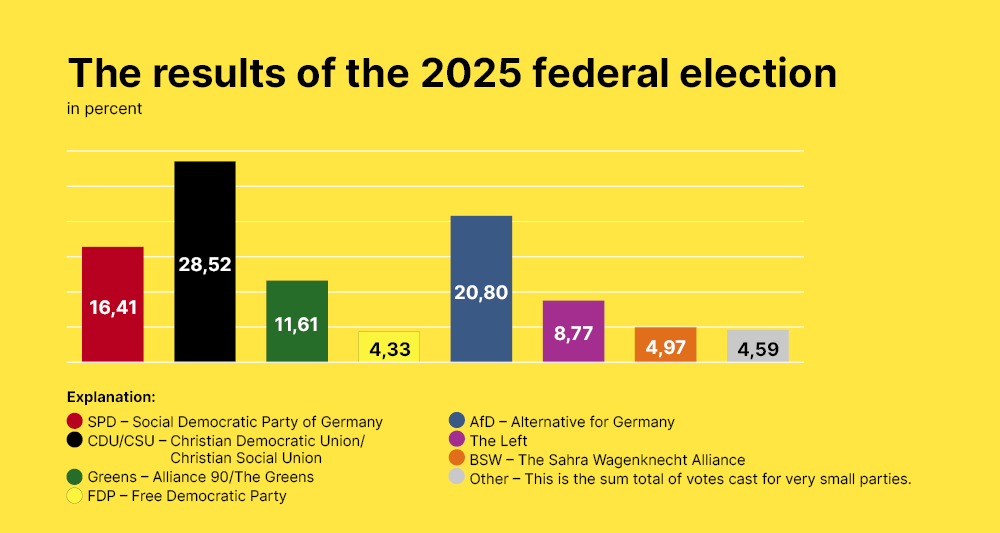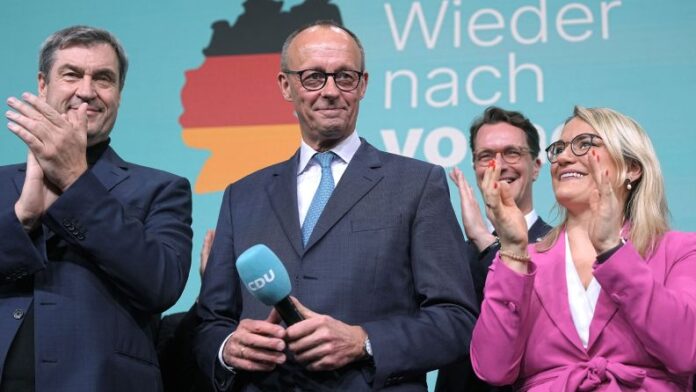Friedrich Merz will now negotiate with parties about a coalition government.
Berlin (dpa) – In the Bundestag elections, the CDU/CSU has clearly become the strongest party with its candidate for Chancellor Friedrich Merz. Merz will therefore enter into coalition negotiations with one or more parties in order to form a government with him as Chancellor. At 84 per cent, voter turnout was higher than it has been for 30 years.
The CDU/CSU received 28,52 per cent of the votes cast. The AfD came in second with just under 20,8 per cent, but no other party wants to work with them. With 16,41 per cent, the SPD is ahead of the Greens (11,61 per cent) and the Left Party (8,8 per cent). The FDP (4,33) and the BSW (4,97) were close to 5 per cent but didn’t take the hurdle.
Around 59.2 million people in Germany were called upon to elect a new Bundestag. Early elections had to be called when the previous coalition government collapsed. The previous government will remain in power until the new parliament has elected a chancellor. This is always the case in German elections, a tried and tested system that has been in place since 1953 – when the first Bundestag was elected in 1949 there had been no previous government. Following a reform, the new Bundestag will have 630 members – more than 100 fewer than the current parliament.
The Federal Returning Officer reports the provisional official final result here.







